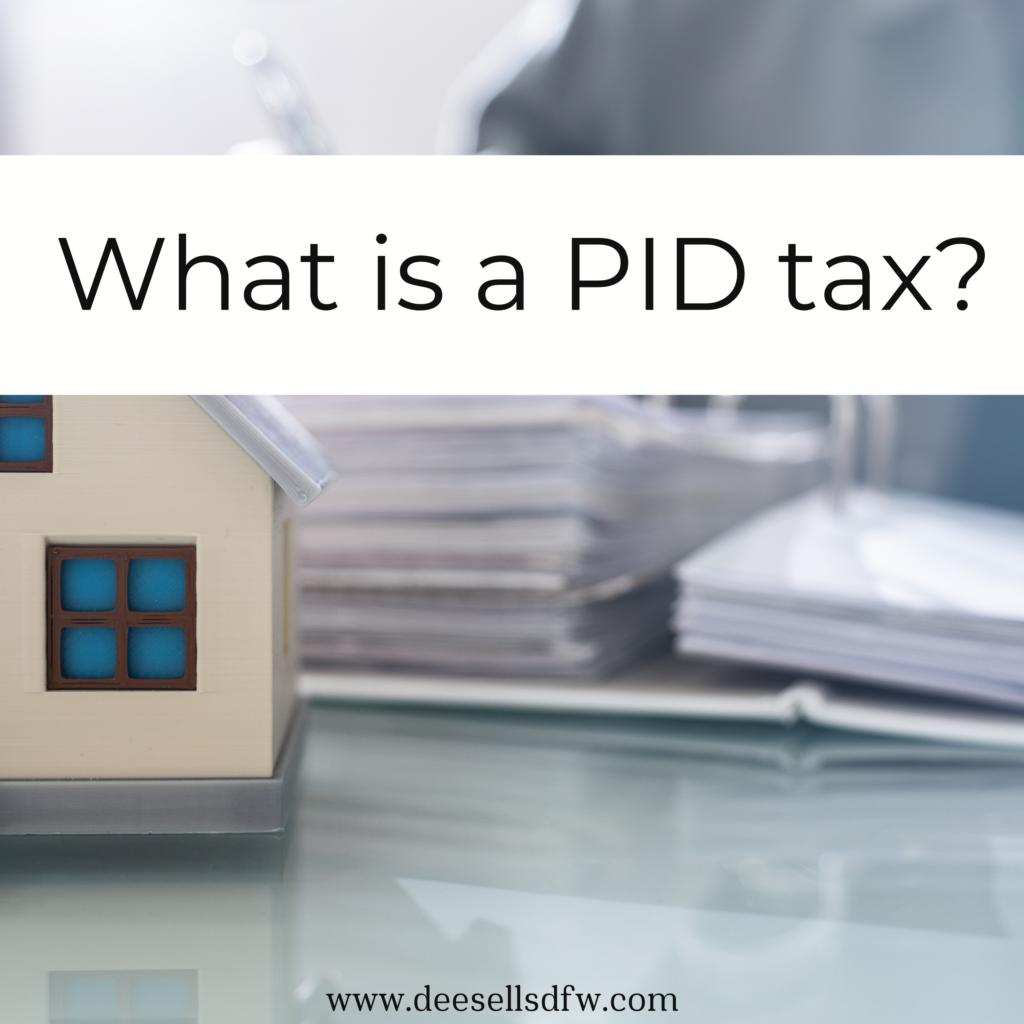When exploring property taxes and fees in the Dallas area, you may come across the term “PID taxes.” PID stands for Public Improvement District, and it plays a significant role in enhancing and maintaining the infrastructure and amenities of certain neighborhoods in the region. Understanding what PID taxes are and why we have them is essential for both current homeowners and potential homebuyers in the Dallas area.

What are PID Taxes and How Do They Work?
A Public Improvement District is a designated area within a city or county where property owners agree to pay additional taxes or assessments to fund specific public improvements and services. These improvements may include enhanced landscaping, street lighting, parks, public safety measures, and other community enhancements.
The creation of a PID is typically initiated by property developers or existing property owners in collaboration with local government authorities. The funds generated from PID taxes and assessments are used exclusively for the improvement projects within the district, enhancing the overall quality of life for residents.
Why Do We Have PID Taxes?
PID taxes serve several essential purposes in the Dallas area:
- Enhanced Community Infrastructure: PID taxes fund improvements that go beyond what traditional city services may provide. These enhancements help create vibrant and attractive neighborhoods that attract homeowners and businesses alike.
- Local Control and Collaboration: Property owners within a PID have a say in the improvements and services they desire for their community. By collaborating with local authorities, they can customize the enhancements to meet the specific needs of their neighborhood.
- Property Value and Investment: The improvements funded by PID taxes often contribute to increased property values and overall desirability of the neighborhood. For homeowners, this can be an advantage in terms of their investment and future resale potential.
- Consistent Maintenance and Services: PID taxes ensure consistent funding for ongoing maintenance and services, preserving the attractiveness and functionality of the neighborhood over time.
How Do PID Taxes Impact Homeowners?
For homeowners within a Public Improvement District, PID taxes are collected as part of their annual property tax bill. The amount of PID taxes varies based on the specific improvements and services provided within the district.
It’s important for potential homebuyers to be aware of the presence of a PID in a neighborhood and understand how PID taxes may impact their overall cost of homeownership. While PID taxes contribute to community enhancements, they are an additional financial consideration that homeowners should factor into their budgeting.
Conclusion:
Public Improvement Districts (PID) play a vital role in enhancing the infrastructure and amenities of neighborhoods in the Dallas area. PID taxes fund specific public improvements and services that go beyond what traditional city services may provide, creating attractive and vibrant communities for homeowners and businesses alike.
As a potential homebuyer or current homeowner, understanding PID taxes is essential when making informed decisions about your property investment. By knowing what PID taxes fund and their impact on the neighborhood, you can navigate the real estate market with confidence and ensure your investment aligns with your lifestyle preferences.
Have more questions about PIDs? Please do not hesitate to reach out to me at dee@deesellsdfw.com.
Hi, there!
I'm Dee and I love helping my clients realize their home dreams. Whether you are selling for the first time or maybe the third time, I look forward to partnering with you to help you find your forever home.
Let's Meet
Contact
469.708.6596
1 Cowboys Way Suite 160
Frisco, TX 75034
dee@deesellsdfw.com
Buy
Blog
Sell
schedule your free consultation